Acre corydoras - Corydoras acrensis
Scientific name: Corydoras acrensis
Common name: Acre corydoras
Family: Callichthyidae
Usual size in fish tanks: 3 - 5 cm (1.18 - 1.97 inch)
014
Recommended pH range: 6.4 - 7.4
Recommended water hardness: 2 - 21°N (35.71 - 375ppm)
0°C 32°F30°C 86°F
Recommended temperature range: 21 - 25 °C (69.8 - 77°F)
The way how these fish reproduce: Spawning
Where the species comes from: South America
Temperament to its own species: peaceful
Temperament toward other fish species: peaceful
Usual place in the tank: Bottom levels
Food and Feeding
Acre Corydoras (Corydoras acrensis) are omnivores and thrive on a balanced diet of both plant and animal matter. Their staple diet should include high-quality flakes and algae wafers. To ensure optimal health and coloration, it is recommended to offer supplemental treats twice a week, such as brine shrimp or bloodworms. These fish are most active during the evening hours, so it’s best to feed them at dusk to align with their natural feeding schedule.
Origin
Acre Corydoras are native to the freshwater rivers and streams of South America, particularly in Brazil. These fish are accustomed to soft, slightly acidic to neutral waters and thrive in environments that replicate their natural habitat, which is rich in vegetation and features sandy or muddy substrates.
Sexing
Distinguishing between male and female Acre Corydoras is easier when they are viewed from above. Females tend to be slightly larger and have a broader, stockier body shape, especially when carrying eggs. Males are typically slimmer and more streamlined in appearance.
Breeding
Breeding Acre Corydoras in captivity is rare, but they are egg scatterers like other Corydoras species. In the wild, they deposit their eggs in well-hidden areas among dense vegetation or within crevices. To encourage breeding in an aquarium setting, simulate rainy season conditions by performing a partial water change with cooler, softer water, and provide plenty of hiding spots. If successful, be sure to separate the adults after spawning to prevent them from consuming the eggs.
Lifespan
With proper care, Acre Corydoras can live for 3 to 5 years. Maintaining a clean, well-balanced aquarium environment with stable water parameters will help ensure they reach their full lifespan. Regular water changes and a varied diet are essential for their longevity.
Tank Setup and Environment
Acre Corydoras are bottom-dwelling fish and prefer aquariums that mimic their natural habitat. A tank of at least 40 liters (10 gallons) is recommended for a small group. These fish are peaceful and should be kept in groups of at least 6 to promote their social behavior. A sandy or fine gravel substrate is crucial to protect their sensitive barbels, and the tank should include plenty of plants, driftwood, and smooth rocks to create hiding spots. Aim to keep the water temperature between 21-25°C (69.8-77°F) with a pH range of 6.4-7.4 and moderate water hardness (2-21°N or 35.71-375 ppm).
Compatibility and Tank Mates
Acre Corydoras are peaceful fish, making them excellent additions to community tanks. Suitable tank mates include other small, non-aggressive species such as Harlequin Rasboras, Guppies, and Neon Tetras. Avoid housing them with aggressive or boisterous fish, as this can cause unnecessary stress. Always maintain a peaceful environment to keep Acre Corydoras thriving.
Short Description
The Acre Corydoras (Corydoras acrensis) is a small, peaceful catfish native to the rivers of South America. These bottom-dwellers are ideal for community tanks and should always be kept in groups of at least 6. They prefer soft substrates like sand or fine gravel to protect their barbels and need plenty of hiding spots such as driftwood and plants. With a lifespan of 3 to 5 years, they are hardy but require stable water conditions and a varied diet to thrive.
Picture
Bought by aqua-fish.net from jjphoto.dk.
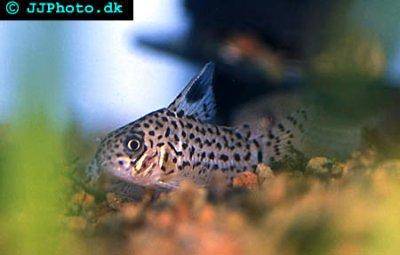

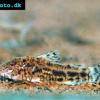 Aspidoras
Aspidoras 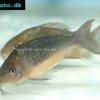 Giant
Giant 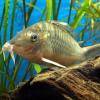 Hognosed
Hognosed 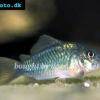 Emerald
Emerald 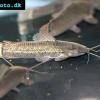 Cascarudo
Cascarudo 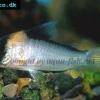 Adolfo’s
Adolfo’s 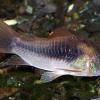 Bronze
Bronze 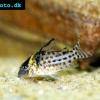 Agassizii’s
Agassizii’s 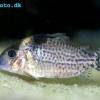 Spotted
Spotted 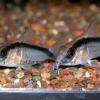 Skunk
Skunk 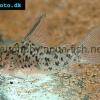 Corydoras
Corydoras 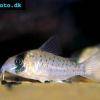 Fairy
Fairy 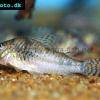 Corydoras
Corydoras 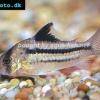 Pink
Pink 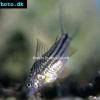 San
San 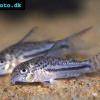 Bond’s
Bond’s 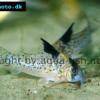 Spotted
Spotted 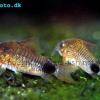 Tailspot
Tailspot 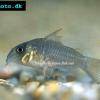 Concolor
Concolor 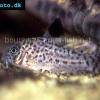 Cope’s
Cope’s 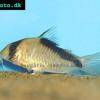 Sand’s
Sand’s 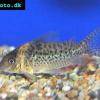 False
False 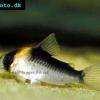 False
False 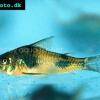 Ehrhardt’s
Ehrhardt’s 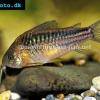 Elegant
Elegant 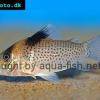 Saddle
Saddle 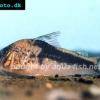 Fowler’s
Fowler’s 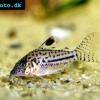 Gomezi
Gomezi 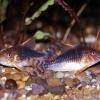 Palespotted
Palespotted 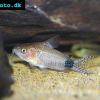 Guapore
Guapore 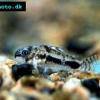 Dainty
Dainty 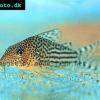 Mosaic
Mosaic 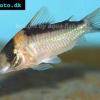 Imitator
Imitator 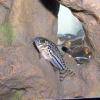 Julii
Julii 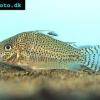 Leopard
Leopard 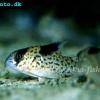 Black
Black 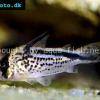 Slant-bar
Slant-bar 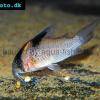 Bluespotted
Bluespotted 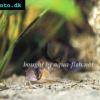 False
False 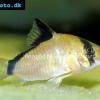 Bandit
Bandit 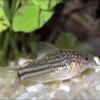 Mini
Mini 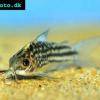 Napo
Napo 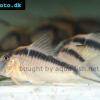 Corydoras
Corydoras 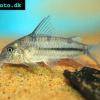 Blue
Blue 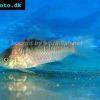 Nijssen’s
Nijssen’s 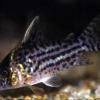 Ornate
Ornate 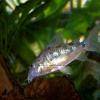 Peppered
Peppered 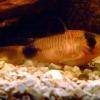 Panda
Panda 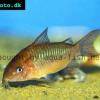 Albertini
Albertini 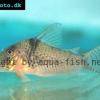 Pastaza
Pastaza 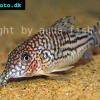 Corydoras
Corydoras 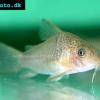 Many-spotted
Many-spotted 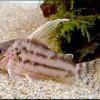 Pretty
Pretty 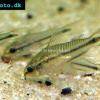 Dwarf
Dwarf 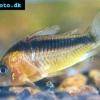 Iridescent
Iridescent 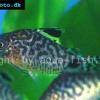 Reticulated
Reticulated 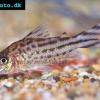 Bannertail
Bannertail 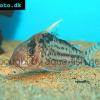 Robust
Robust 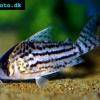 Schwartz’s
Schwartz’s 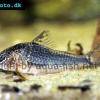 Black
Black 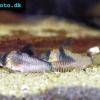 Longnosed
Longnosed 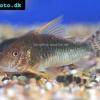 Seuss’
Seuss’ 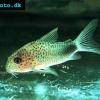 Smudge
Smudge 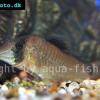 Masquerade
Masquerade 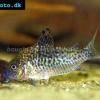 False
False 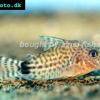 Millenium
Millenium 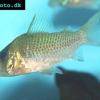 Pinkthroat
Pinkthroat 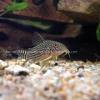 Sterba’s
Sterba’s 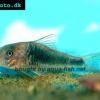 Longsnout
Longsnout 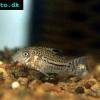 False
False 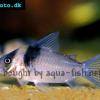 Miguelito
Miguelito 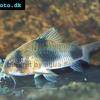 Twosaddle
Twosaddle 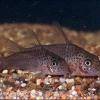 Xingu
Xingu 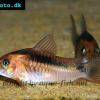 Black
Black 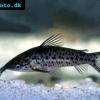 Porthole
Porthole 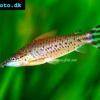 Flagtail
Flagtail 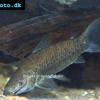 Brown
Brown 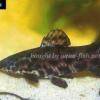 Spotted
Spotted